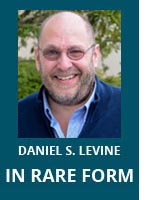
Whole genome sequencing today generates volumes of data on a person’s genetic make-up, but it still may leave a rare disease patient without a clear answer as to what gene may be responsible for their disorder.
The problem is that the vast amount of data it produces and the large number of mutations that any individual will have can obscure the one variant underlying a condition.
Greg Cooper knows the challenges well. As a faculty investigator at the HudsonAlpha Institute for Biotechnology in Huntsville, Alabama, he works to unlock the mystery underlying mendelian disorders, particular ones that involve intellectual disabilities and developmental delays.
His lab recently published a paper in the American Journal of Human Genetics that linked a variation in the BRSK2 gene with neurodevelopmental disorders. Over a little more than three years, Cooper’s lab, working with University of Alabama at Birmingham pediatric neurologist Martina Bebin, identified four patients with the mutation, two of whom had de novo mutations meaning that the mutations had not been passed on by the parents, but had been spontaneous.
The Cooper Lab identified the children as part of work on a Clinical Sequencing Exploratory Research Project, an effort funded by the National Institutes of Health to identify the genetic causes of undiagnosed conditions by using genome sequencing.
Cooper believed they were on to something, but still had to make sure they weren’t just picking up statistical noise. He needed to find other cases to make a clear connection between the BRSK2 variants and the intellectual disabilities in these patients. To do that, he turned to GeneMatcher.
GeneMatcher is designed to enable connections between patients, their families, clinicians, and researchers from around the world who share an interest in the same gene. The intent is to help solve genetic mystery cases by pairing people with mutations involving the same genes. The Baylor-Hopkins Center for Mendelian Genomics developed the website, which is freely accessible.
The site allows individuals to post a gene of interest and will connect others who identify an interest in the same gene. The match is done automatically. When a match occurs, the submitters will automatically receive email notification. It is at the discretion of the participants if they would like to connect. It’s also possible to query other gene matchmaker sites through the service.
By using this service, Cooper was able to let others know he was interested in anyone with a patient or child who had a BRSK2 mutation. Through the service, he identified an additional five patients with BRSK2 mutations, all of whom had developmental disabilities. In all, six of the nine cases had de novo mutations, which made a strong case that what they had found was not coincidental.
“In genetics, especially since we sequence lots of DNA, lots of genes, there’s always this concern about just statistical noise,” said Cooper. “Because you’re collecting so much data, you’re bound to find some patterns at random. But one of the things that we look for is when you see repeated de novo changes in the same gene in people that have developmental problems, that’s what starts to make the story convincing.”
It’s not clear what the next steps will be. It’s possible, if the parents of the patients want, their genetic counselors could connect them. That could help give rise to an effort to research the condition and began the road to better understanding the disease, as well as create a search for treatments.
What’s remarkable about the story is that while sophisticated sequencing technology may have been used to read the genetic code of the patients involved in the study, it was a relatively simple social networking tool that ultimately allowed the researchers to find the answer they sought. That should be a reminder not only about the limits of sequencing, but about the power of collaboration.
Photo: Greg Cooper, faculty investigator at the HudsonAlpha Institute for Biotechnology in Huntsville, Alabama

Stay Connected
Sign up for updates straight to your inbox.
